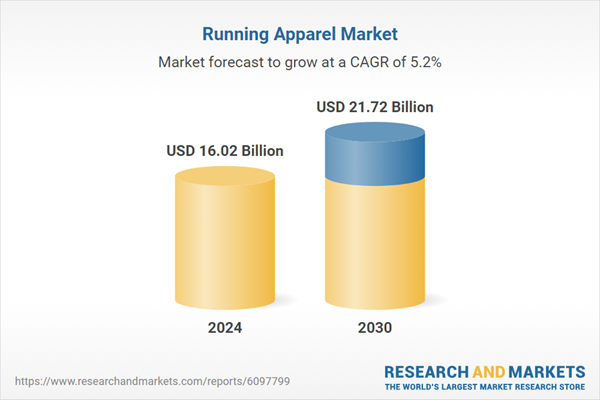Speak directly to the analyst to clarify any post sales queries you may have.
10% Free customizationThis report comes with 10% free customization, enabling you to add data that meets your specific business needs.
Key Market Drivers
Growing Health and Fitness Awareness Among Consumers
A key factor driving the global running apparel market is the increasing health and fitness consciousness among consumers of all age groups. With the rise of health issues such as obesity and cardiovascular diseases, individuals are increasingly adopting running and jogging as part of healthier lifestyle choices. In the United States, CDC data from 2023 shows that over 35% of adults in 23 states are impacted by obesity, highlighting a growing need for active lifestyles. Public health campaigns, wellness programs, and social media fitness influencers are also encouraging people to engage in regular physical activity. Consequently, the demand for functional and comfortable running gear has risen, with consumers seeking apparel designed for specific weather conditions, performance needs, and body types. Events such as marathons and park runs have further fueled interest in running, driving up the consumption of specialized running apparel worldwide.Key Market Challenges
Intense Market Competition and Brand Saturation
The global running apparel market faces a major challenge from high competition and market saturation. Leading players like Nike, Adidas, and Under Armour dominate with large-scale operations and robust brand equity, while an influx of emerging brands and regional competitors adds to the crowded landscape. This intense rivalry has led to price wars, frequent product releases, and significant marketing expenditures, all of which strain profitability. Moreover, counterfeit and substandard products, particularly through online channels, can damage brand trust and dilute value propositions. As brands fight for visibility and consumer loyalty, both new and established companies must invest continuously in innovation and customer engagement to maintain market relevance and differentiate themselves.Key Market Trends
Rise of Customization and Personalized Running Gear
The trend toward personalization is reshaping the global running apparel market, as consumers seek products that align with their individual preferences and fitness goals. Brands are increasingly offering customization options such as fit adjustments, unique colorways, name printing, and motivational messages on garments. Digital tools now allow users to configure their own gear online, from fabric selection to design features. This personalization not only enhances customer satisfaction but also helps foster brand loyalty and repeat purchases. Advances in digital printing and on-demand production have made personalized apparel more accessible and scalable, enabling companies to deliver unique value in a saturated market. The trend is particularly appealing to younger, style-conscious, and tech-savvy consumers, as well as running clubs and fitness groups looking for cohesive branding.Key Market Players
- Adidas Group
- New Balance Athletics, Inc.
- ASICS Corporation
- Nike, Inc.
- Amer Sports, Inc.
- Skechers USA
- Fitbit Inc.
- VF Corporation
- Puma NA
- Under Armour Inc.
Report Scope:
In this report, the Global Running Apparel Market has been segmented into the following categories, in addition to the industry trends which have also been detailed below:Running Apparel Market, By Product Type:
- Clothing
- Footwear
- Others
Running Apparel Market, By Distribution Channel:
- Online
- Offline
Running Apparel Market, By Region:
- North America
- United States
- Canada
- Mexico
- Europe
- France
- United Kingdom
- Italy
- Germany
- Spain
- Asia-Pacific
- China
- Japan
- India
- South Korea
- Vietnam
- South America
- Argentina
- Colombia
- Brazil
- Middle East & Africa
- South Africa
- Saudi Arabia
- UAE
- Turkey
Competitive Landscape
Company Profiles: Detailed analysis of the major companies present in the Global Running Apparel Market.Available Customizations:
With the given market data, the publisher offers customizations according to a company's specific needs. The following customization options are available for the report.Company Information
- Detailed analysis and profiling of additional market players (up to five).
This product will be delivered within 1-3 business days.
Table of Contents
Companies Mentioned
- Adidas Group
- New Balance Athletics, Inc.
- ASICS Corporation
- Nike, Inc.
- Amer Sports, Inc.
- Skechers USA
- Fitbit Inc.
- VF Corporation
- Puma NA
- Under Armour Inc.
Table Information
| Report Attribute | Details |
|---|---|
| No. of Pages | 184 |
| Published | June 2025 |
| Forecast Period | 2024 - 2030 |
| Estimated Market Value ( USD | $ 16.02 Billion |
| Forecasted Market Value ( USD | $ 21.72 Billion |
| Compound Annual Growth Rate | 5.2% |
| Regions Covered | Global |
| No. of Companies Mentioned | 10 |









